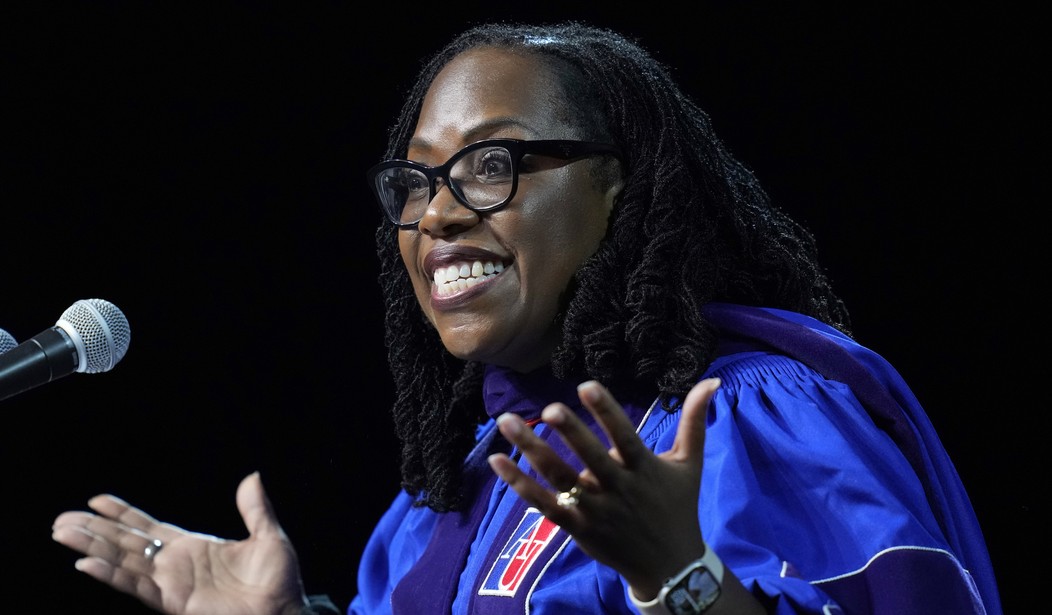If you’re looking for a textbook example of the dangers of diversity, equity, and inclusion (DEI) hiring, look no further than Justice Ketanji Brown Jackson. Since her appointment, Jackson has served as a glaring reminder of what happens when identity politics trumps qualifications. Her time on the bench has been defined less by legal insight and more by ideological posturing—and that’s no accident. The moment Joe Biden pledged to nominate a black woman to the Supreme Court, the process became a political stunt rather than a serious search for judicial excellence. That damage was only compounded when he chose someone so clearly unqualified for the role, someone who has repeatedly demonstrated she’s in over her head.
Jackson’s tenure has been marked by a growing isolation—even among her fellow liberals on the bench. Her penchant for solo dissents and doomsday rhetoric has managed to alienate not just the conservative justices but even her leftist allies on the court.
ICYMI: You Won’t Believe Who Democrats Think Can Save Their Party
When she recently penned a dissent slamming the majority’s decision on federal workforce downsizing, not even Justice Sonia Sotomayor would join her. Instead, the “wise Latina” pointed out that the administration’s actual plans weren’t even before the court. Jackson, undeterred, accused her colleagues of making a “hubristic and senseless” decision and warned of vague threats to democracy.
It’s no wonder that legal scholars and commentators are noticing a shift. Jackson is increasingly out of step with the rest of the Court.
Jackson was in the majority only 72% of the time in the 2024-2025 term, less than any other justice. By contrast, Justice Elena Kagan was in the majority 83% of the time. Even Sotomayor managed 78%. Jackson’s habit of writing more concurring and dissenting opinions than anyone since 1937 isn’t a sign of intellectual rigor—it’s the hallmark of a justice guided more by rigid ideology than by any consistent or objective judicial philosophy.
— Margolis & Cox (@MargolisandCox) July 14, 2025
The issue with Jackson isn’t limited to her written opinions—it’s her entire approach to the job. In a recent public appearance, she openly gushed about how serving on the Court gives her a platform to “express” her opinions and “tell people… how I feel about the issues.” That kind of mindset completely misses the mark. As Justice Scalia often reminded us, a law can be stupid and still be constitutional—because the role of a justice isn’t to emote, it’s to interpret the law faithfully. Jackson, by contrast, is more interested in activism than jurisprudence. She’s repeatedly voiced her fears about the “state of our democracy” and admitted she’s “not afraid to use” her voice, even if it means stepping on her colleagues’ toes. During oral arguments, she dominates the conversation, speaking far more than any other justice—sometimes to the point where even Sotomayor has to tell her to let others speak.
Jackson’s record is a cautionary tale. She’s proof that when you prioritize DEI talking points over legal acumen and judicial temperament, you end up with a justice who’s out of her depth, alienating her peers, and turning the highest court in the land into her personal soapbox. The Supreme Court—and the country—deserves better.










